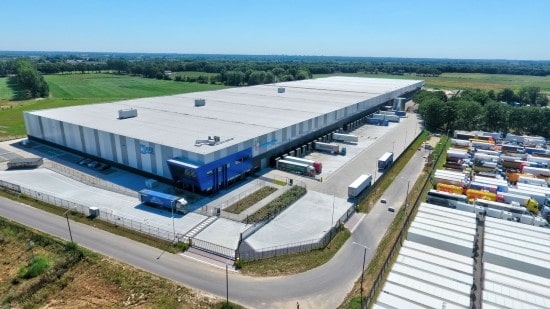Different price expectations between buyers and sellers continue to hamper trading, particularly in the core segment. The sharp drop in turnover is also due to the fact that real estate and high-volume portfolio transactions have fallen, according to international consultancy Savills.
The limited trading data available paints a mixed picture for Q1 logistics price developments notes international consultancy Savills, with prime yields down 40 basis points in both Île-de-France and Amsterdam in 4.4%, and by 30 bps in Madrid to 4.8%. Cologne was flat at 3.9%.
Meanwhile, the benchmark yield on a key asset in London fell 25 basis points to 4.75% for the quarter. More yield compression is expected to follow, with investors returning to the UK after a significant 35% price drop that was driven more by panic than fundamentals.
In the rest of the region, we continue to expect activity to pick up in the second half of this year, but this may depend on further price corrections in the near term as investors demand higher yields in the current capital market environment.
As a result, yields are expected to decline further over the next 12 months in key continental European markets, as well as in Dubai, despite the latter already providing very attractive yields relative to other markets. Meanwhile, activity is driven by private equity for smaller properties. However, specialist institutional investors remain committed to the sector, provided the price is right, as the UK experience shows.
Logistics take-up in the first quarter of the year in Europe and the UK was 39% below the first quarter of 2021. However, this is broadly in line with the long-term average and job metrics in some key markets show a rapid recovery.
Meanwhile, vacancy rates in the region remain low, with the UK at 5.4%, Madrid at 5.7% and Amsterdam at 6.3%. Thus, with no evidence of construction oversupply, property availability should remain in check and support moderate rent growth, particularly for larger assets with strong corporate tenants, although incentives may increase and lease lengths may increase. decreased in response to the normalization of tenant activity, Savills concludes.
The Greek real estate market
Despite the headwinds in the global economy, the Greek Logistics market remains resilient and continues to perform well through 2023, offering investors a solid foundation for competitive returns and sustainable rental levels, according to Savills Hellas
The Greek logistics market offers higher returns relative to the mature European markets, although it is still lower than all Balkan countries.
Rents are expected to continue to move upwards in 2023, as a result of increasing demand and the lack of modern large-scale logistics units. As a result, prime rents are likely to show a 10% increase that exceeds the levels of 5.00 euros per sq.m. monthly for prime ambient warehouses and €6.50 per sq.m. monthly for deep-freezing and cooling facilities in the areas of Aspropyrgos, Mandra-Magoula and Elefsina (west of Greater Athens).
Prime logistics vacancy rates will remain extremely low in 2023 as a result of continued demand from occupiers for modern, high-spec product.
According to the company, investors will continue to seek to acquire land and older industrial assets in order to satisfy the positive momentum arising as a result of the country's economic development and its increased strategic importance as a transport hub and gateway for products from Asia and other parts of the world in Europe.
Acquisitions of land and older industrial assets will be followed by developments and/or renovations that are expected to meet ESG criteria, as a result of the "green" strategies that almost all major investors have committed to.















